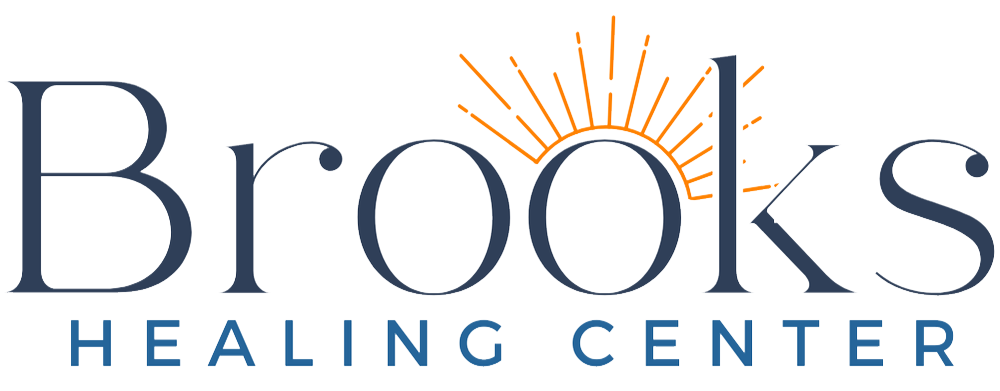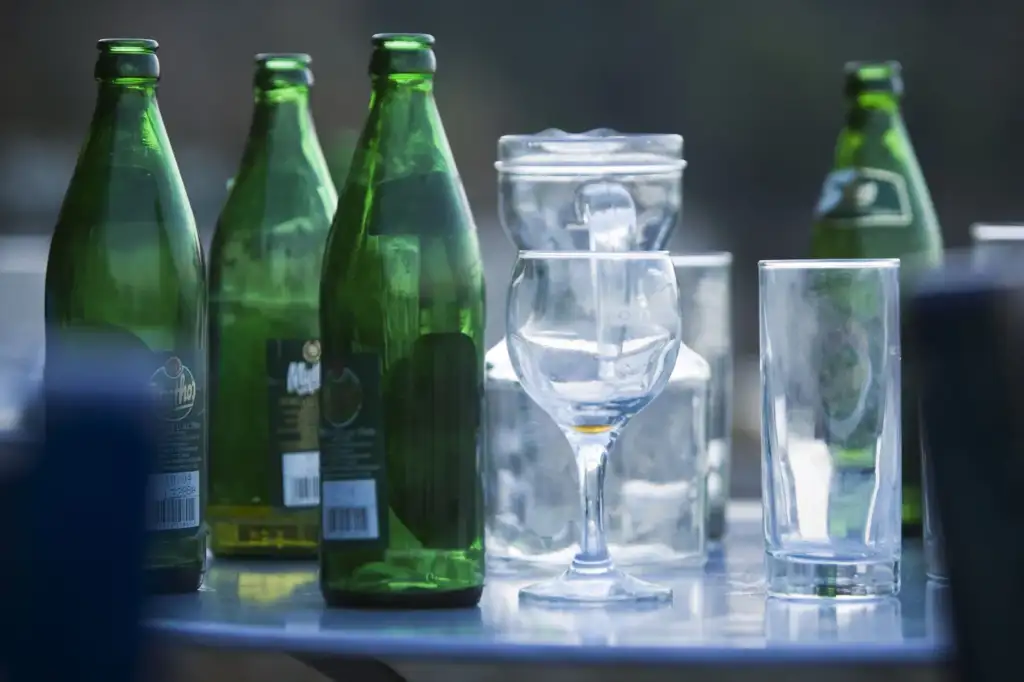Overconsuming alcohol can lead to blacking out. When a person has blacked out, they may appear alert, but they are not aware of what is going on in their surroundings, and their brains are not processing the events into memories. This results in missing or fragmented memories. Blacking out increases one’s risk of falling, injury, and unwanted sexual encounters. Numerous blacking out experiences increase one’s risk of long-term memory problems and cognitive decline.
What is “Blacking Out”?
Alcohol-induced blackouts occur when alcohol has been misused and overconsumed. Blackouts leave gaps in an individual’s memory during the time that they were intoxicated. These gaps are a result of the alcohol blocking the transfer of short-term memories to long-term memory. This is called memory consolidation and happens in the brain’s hippocampus.[1]
Types of Blackouts
Blackouts are categorized by the severity of the memory impairment experienced. The two types of blackouts are: [2]
- Fragmentary Blackout: This is the most commonly experienced type of blackout. As the name states, the symptoms are spotty or fragmented memories. The person may have moments they remember mixed in with missing periods of time. This type of blackout is also known as a grayout or a brownout.
- En Bloc Blackout: This type of blackout is the most severe and is experienced as complete amnesia. It can last for a number of hours. Events that happen during this time do not have any memories created and cannot possibly be recovered. For the person experiencing this type of blackout, it is as if that time or event never happened.
When do Blackouts happen?
Blackouts happen when a person’s blood alcohol concentrations (BACs) reach 0.16% or higher. This is twice the legal driving limit, and there are significant impairments experienced with high BACs, including impaired cognitive ability – impulse control, attention, judgment, and decision-making. Impairment in cognitive ability makes blackouts particularly dangerous.[3]
If you take anti-anxiety or sleeping medications, blackouts can happen with much lower BACs.
Increased Risks for Blackouts
Research supports that blackouts are more likely to happen when alcohol enters the bloodstream quickly, resulting in the BAC rising quickly.[4] Situations that cause this to happen include
- Drinking on an empty stomach
- Drinking a large amount of alcohol over a short period of time
Blackouts often occur due to binge drinking, which typically raises a person’s BAC over 0.08. Binge drinking is consuming four drinks for women or five drinks for men in a two-hour period. Generally, it is accepted that binge drinking is consuming four or more drinks for women or five or more drinks for men within a two-hour period. Blackouts most often occur in people who engage in high-intensity drinking, which is drinking at a rate at least twice as high as the binge-drinking threshold.
Teenagers and college-age adults have a higher risk for blackouts. Young adults tend to drink less frequently than older adults, but when they do drink, they consume higher amounts of alcohol. The age group with the highest rates of binge drinking is ages 12-25.[5]
Young adults under the age of 25 are vulnerable to experiencing blackouts.[6] Younger people tend to have a lower alcohol threshold to experience blackouts. The explanation behind this is that a person’s decision-making part of their brain does not fully develop until around the age of 25. Intentional binge drinking is also a common practice among younger adults.
Another risk factor is being female. Females tend to weigh less than males and have less water in their bodies, which results in females reaching higher peak BAC levels than males with each drink and doing so more quickly.
No matter one’s age or gender, research shows that the more frequently you experience a blackout, you are at an increased risk for memory lapses and cognitive difficulties, even if you stop misusing alcohol. Even though you are no longer experiencing a blackout or consuming alcohol, you can continue to have memory loss and difficulties recalling events.[7]
Signs Someone is Experiencing a Blackout
It can be difficult to know if someone is experiencing a blackout as they appear aware of their surroundings. The following can be signs someone may be experiencing a blackout:[8]
- Difficulty standing
- Nausea
- Lightheadedness
- Loss of vision or tunnel vision
People who are experiencing a blackout are at higher risk of falling, having an accidental injury, and having unwanted or unsafe sexual encounters.
Potential Long-Term Brain Problems
Long-term consequences of binge drinking or heavy drinking can include memory difficulties, cognitive problems, dementia, and brain atrophy. [9] Heavy drinking can result in Wernicke-Korsakoff syndrome. This syndrome involves encephalitis and long-term, chronic memory problems.
Alcohol use-induced brain changes in thinking, feeling, and behaviors can be improved and even reversed with sobriety. Brain plasticity is the ability of the body to grow and change from how it previously functioned. Establishing healthy behavior patterns in recovery can help improve brain plasticity.
Preventing Blackouts
The only way to prevent a blackout is not to overconsume the amount of alcohol that causes you to blackout. Consideration can be given to knowing your limits, not drinking on an empty stomach, and staying hydrated.
Remember that binge drinking is most often the cause of blackouts. Binge drinking is consuming four or more drinks for women or five or more drinks for men within a two-hour period. A standard drink is defined as [10]
- 12 ounces of regular beer, which is usually about 5% alcohol
- 5 ounces of wine, which is typically about 12% alcohol
- 1.5 ounces of distilled spirits, which is typically about 40% alcohol
Recovering from Blacking Out
Blacking out from alcohol can have serious consequences, from short-term accidents and injuries to long-term memory and cognitive issues. If you believe you or a loved one has a pattern of binge drinking or experiencing blackouts, there are solutions.
It may be a simple solution to slowing down the amount of alcohol you consume in one day. Or you may benefit from additional support. Evidence-based programs to treat alcohol use disorder include medication and behavioral health treatment. Treatment can help you recover from patterns of binge drinking and blacking out.
FAQ’s
Are blacking out the same as passing out?
No, they are not the same. Passing out refers to falling asleep or loss of consciousness from overconsuming alcohol. Blacking out, the individual is awake, but their brain is not processing what is happening into memories. It is possible to go from blacking out to passing out.
Are blackouts a sign of a drinking problem?
Blackouts can indicate harmful drinking patterns and may suggest an alcohol use disorder. However, they can indicate a harmful pattern of drinking that should prompt you to consider your drinking habits. If you have concerns, talk to your healthcare provider about your drinking and what steps you can take to reduce your alcohol consumption and improve your health.
Can blackouts occur for other reasons?
Sedative medications and benzodiazepines can also cause blackouts if misused. Certain medical conditions can cause blackouts, including, but not limited to, strokes, traumatic brain injuries, and seizures.
Sources
[1,2,3,4] National Institute on Alcohol Abuse and Alcoholism. (2023, February). Interrupted memories: Alcohol-induced blackouts. Retrieved from https://www.niaaa.nih.gov/publications/brochures-and-fact-sheets/interrupted-memories-alcohol-induced-blackouts on July 27, 2024.
[5] Hermens, D. F., & Lagopoulos, J. (2018). Binge Drinking and the Young Brain: A Mini Review of the Neurobiological Underpinnings of Alcohol-Induced Blackout. Frontiers in Psychology, 9. Retrieved from https://www.ncbi.nlm.nih.gov/pmc/articles/PMC5780446/ on July 27, 2024.
[6,7,8] Cleveland Clinic. (2024, July 22). Blackouts and your brain. Retrieved from https://health.clevelandclinic.org/brownout-vs-blackout on July 27, 2024.
[9] Topiwala, A., Allan, C. L., Valkanova, V., Zsoldos, E., Filippini, N., Sexton, C., Mahmood, A., Fooks, P., Singh-Manoux, A., Mackay, C. E., Kivimäki, M., & Ebmeier, K. P. (2017). Moderate alcohol consumption as risk factor for adverse brain outcomes and cognitive decline: Longitudinal cohort study. The BMJ, 357. Retrieved from https://www.ncbi.nlm.nih.gov/pmc/articles/PMC5460586/#idm139655746343536title on July 27, 2024.
[10] National Institute on Alcohol Abuse and Alcoholism. (n.d). What is a standard drink?. U.S. Department of Health and Human Services. Retrieved from https://www.niaaa.nih.gov/alcohols-effects-health/overview-alcohol-consumption/what-standard-drink July 27, 2024.

